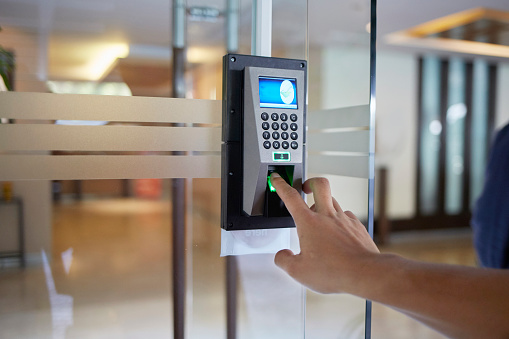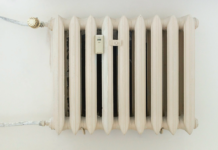Having a fingerprint door lock in your home can help you monitor your visitors, find lost keys, and protect your property. Some fingerprint door locks are compatible with smart home systems, and some can even be operated by apps. Some are even pick-proof and weatherproof. However, before you invest in one, make sure you know what to look for in a fingerprint door lock. Read on to find out what to look for in a fingerprint door lock and the pros and cons of fingerprint door locks.
Biometric locks
Using a biometric lock to secure your home or office is a great way to keep your property safe. These locks use personal identifiable information, usually fingerprints, to open doors. Then, a PIN can be typed into the lock to allow you to enter or exit your home. A fingerprint door lock can be convenient for many reasons, including minimizing the chance of lost or stolen keys. Many homeowners find biometric locks to be far more convenient than keys, but some users prefer to use a physical key.
Depending on which type of fingerprint door lock you choose, the price of biometric locks will vary dramatically. To make the most appropriate purchase, establish a budget based on the features you need. If you’re looking for an integrated intruder alarm and fingerprint-based security, you’ll need to invest more. The more advanced fingerprint door locks may even offer built-in security features. And you’ll need a budget that allows for more security features and extra storage for biometric fingerprints.
A biometric fingerprint door lock provides two forms of entry, including a physical key and an electronic deadbolt. One type is flashy and may signal that you have valuables inside the house. But the best fingerprint door lock will provide two means of entry, allowing you to keep both your property and your people safe. It is also compatible with smart home devices such as Google Home or Alexa. If you’d prefer to use a fingerprint door lock for your home, try choosing one that supports WiFi remote access.
Cost of fingerprint door locks
The cost of fingerprint door locks can be categorized into two major categories: low-end and high-end. The low-end category includes fingerprint door locks that are not branded. They are inexpensive because the cost is not related to the quality, experience, or service of the product. Low-end products are not always made with high-end materials like stainless steel, and their design is simple and unobtrusive. Most of these low-end models are equipped with semi-automatic hand-held door opening and anti-cat eye-opening features.
Compared to other door locks, fingerprint recognition door locks are not completely safe. They are not impenetrable in a pandemic, but they are safe in a property where visitors and staff have access to private areas. However, the high cost of fingerprint door locks may put you off purchasing them. Nevertheless, it is worthwhile to invest in a fingerprint door lock that provides maximum security. It is important to choose the best fingerprint door lock for your home or business.
Fingerprint locks can be costly, but the benefits far outweigh the cost. Some models are less expensive than others and are easy to install. They also provide multiple unlocking methods, including fingerprints and a code. Some models offer Bluetooth functionality and geo-fencing. A fingerprint door lock can be very convenient. The cost of fingerprint door locks may vary by type, but the quality and durability of these products should not be compromised.
Security of fingerprint door locks
The security of fingerprint door locks depends on the accuracy of the matching process. The door lock can recognize as many as 1,000 authorized users. The lock allows you to assign either fingerprint identification or pin code entry, or both. You can also program the lock from your desktop computer, via remote access or using a thumb drive. The fingerprint door lock records the time of entry and exit. This allows you to control who has access to your home or business.
A good biometric lock should be made of high-quality materials to avoid breaking under force. A zinc alloy should be sturdy enough to withstand blunt force. If there’s a risk of theft, you should purchase a biometric door lock that is equipped with additional features. Some fingerprint locks have features like infrared sensors, geo-fencing, and anti-peeps. You can also install security alarms in your home with a fingerprint lock.
A fingerprint door lock may be the best choice for your home if you lose your keys, are concerned about the safety of visitors, or are unable to identify guests. Fingerprint door locks can work with smart home systems or even apps. They are also pick-resistant and weatherproof. Fingerprint door locks are becoming increasingly popular, which means they will remain an essential part of your home security. However, there is no guarantee that fingerprint door locks will remain secure in the event of a pandemic.









